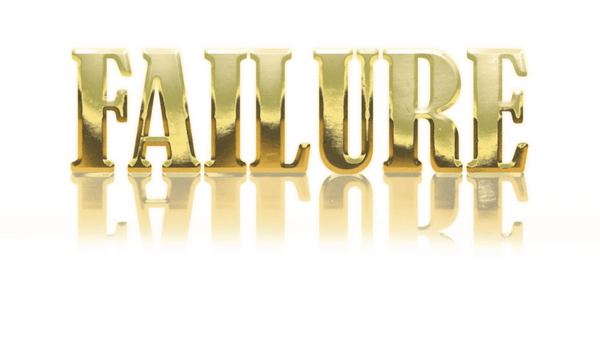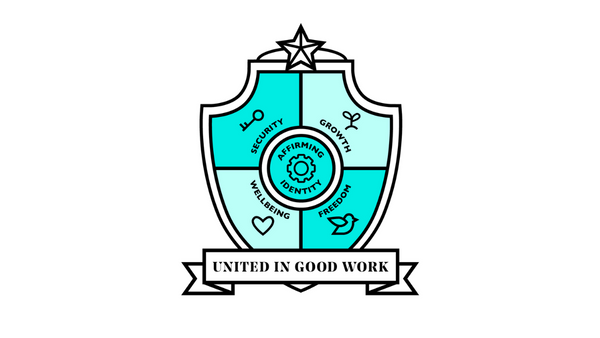What does ‘good work’ mean, and how can individuals, institutions, communities, and societies achieve it? Howard Gardner and Danny Mucinskas respond to the RSA’s Matthew Taylor’s review of modern work practices and present two contrasting perspectives.
In July 2017, the UK government published a 115-page report: Good Work: The Taylor Review of Modern Working Practices. Speaking at the launch the Prime Minister Theresa May expressed support for growth in employment and business activity while stressing the need to confront the challenges posed by ongoing changes in the labour market.
The report’s authors contend that work in the UK “should be fair and decent with realistic scope for development and fulfilment,” made possible by an economy that benefits everyone. They argue that the UK can move towards a prosperous future with ubiquitous “quality” work by following a set of policy recommendations that will improve corporate governance and make management more efficient.
The recommendations include: a clarification of the legal distinction between workers and the self-employed; fairer application of the National Minimum Wage law; implementation of a requirement that all employees be notified of their rights when beginning a new position; and using existing regulatory bodies more wisely to enforce law and hear possible violations.
The Taylor Review is insightful. It identifies sources of problems, such as unequal power dynamics, lack of readily available information, and the potential for disruptions from the gig economy and automation. Its proposed conclusions can improve working conditions across the board. We applaud and support these efforts.
Yet while the authors designate “good work” as an ideal, they do not parse this term. So what is good work? Is it simply a working environment and an economic structure that is ‘better’ than the current model? Are there particular qualities that good work eschews or embodies? Alas, rather than probing deeply and skeptically, the report presupposes that these questions need not be posed or have been answered.
We don’t agree. Our own definition has been honed through extensive research over two decades. On the basis of in-depth interviews with over 1200 professionals drawn from nine different domains at varying stages in their careers, we and our colleagues from several research laboratories developed and field tested a comprehensive framework. On our formulation, good work features three key elements.
- Excellence - technical proficiency, or doing something well;
- Engagement - a sense of connection as well as enjoyment;
- Ethics - a developed moral compass, a recognition of dilemmas or tricky situations as they arise at the workplace, along with a willingness to learn from them, and an appreciation of the ripple effects of our actions and inactions.
Excellence, Engagement, Ethics; these Es comprise an intertwined triple helix of integrally connected components that generate and embody good work. These ideas have been addressed in dozens of scholarly articles, books (such as Good Work: When Excellence and Ethics Meetand Making Good: How Young People Cope with Moral Dilemmas at Work), and in curricular materials created to educate a younger audience of future workers (such as the GoodWork Toolkit). Much of this work is summarized at The Good Project.
Engagement is the one feature addressed in the Taylor Review. Employee wellbeing is a cornerstone: all workers in the UK should feel fulfilled and happy in their employment, achievable with the aid of appropriate working conditions, work-life balance, and educational opportunity. We endorse this clarion call. However, little mention is made of excellence on the job; whether individuals are performing their job duties well. Nor is there discussion of what it means to perform well: whose criteria, how are they imposed, what happens when the realm of work changes significantly, or is completely disrupted (as, for example, by technological innovations, economic cataclysms, or a supervisor with different values or no values).
Most surprisingly, aside from a statement about “non-cognitive life skills” like character and resilience, ethical considerations do not figure in the report. Yet how workers and companies deal with ethical dilemmas is central to the functioning of society. Indeed, ethics have taken on new urgency. From the tax avoidance of HSBC to Volkswagen’s emissions scandal to the still unfolding charges against Barclays bankers for actions taken during the financial crisis, the chaos caused by unethical practices is unambiguous. From our vantage point in the United States, where the director of the government ethics office resigned and declared a “state of crisis” due to the misbehavior of the Trump administration, the situation appears to be worsening by the day.
The Taylor Review favors legislative and policy solutions to workplace problems, and sometimes these may be necessary and this may well have been the scope of the review. But our research reveals that ethical (or unethical) behaviors and practices are generally the product of two powerful forces. Firstly, the degree of professionalism on the part of workers, who must understand the central beliefs, values, and expectations of their sector and their community. And secondly, the culture of the institution, domain, or field in which someone is working; what is esteemed, tolerated, challenged, or constitutes grounds for dismissal. After all, workers can feel totally engaged and yet be instrumental in a disaster for the wider community and, ultimately, for themselves and their fellow employees (as happened at HSBC, VW, Barclays, and elsewhere).
The power of institutional and cultural norms in encouraging ethical behavior should therefore not be underestimated, and societies can incentivise institutions and sectors to sustain these norms (for example, privileges offered to professions that maintain strict codes of ethics and reprimands to those who break those rules).
To be sure, no single document can address all aspects of work. We hope that this brief glimpse of our own investigations provides important additional parts of the puzzle and of the overall picture. During the last century, the United States and Britain have worked shoulder-to shoulder on issues of world importance. Perhaps we can collaborate as well on issues of ‘work importance’.
Howard Gardner is Hobbs Professor of Cognition and Education at the Harvard Graduate School of Education and co-founder of The Good Project. Danny Mucinskas is Project Manager for The Good Project at the Harvard Graduate School of Education.
Related articles
-
-
Good Work Guild
Adanna Shallowe
RSA project, Good Work Guild, reimagines the medieval guild as a tool for inspiration and innovation.
-
We need intergenerational future of work dialogue now
Bob Jeffery Farheen Khan Ashok Pandey Tim Whitaker
A radical new policy agenda is required to support multigenerational workplaces as they become the new normal.





Be the first to write a comment
Comments
Please login to post a comment or reply
Don't have an account? Click here to register.